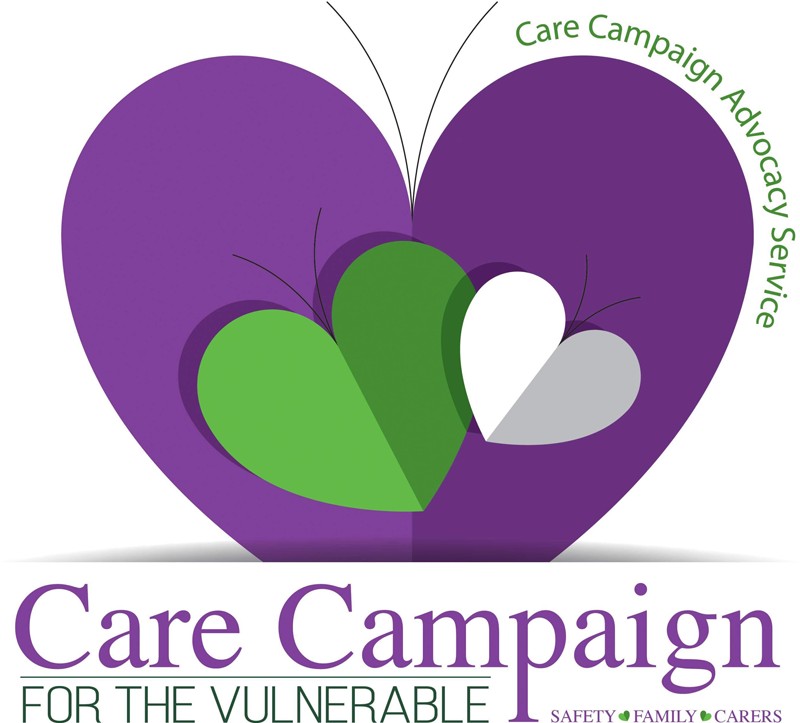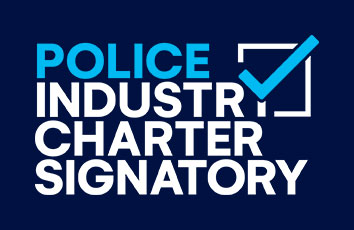Frequently Asked Questions
Why should I use Say So?
If you feel you cannot, for any reason, report your concern through your supervisors then Say So provides a means to ensure your information reaches senior management. It provides every employee with a voice that will be heard.
When should I use Say So?
All employees in all sectors have a duty to report concerns about health and safety in the workplace. Additionally, employees often have concerns about fairness, misconduct or even the wellbeing of a colleague that are difficult to report in the usual way. In the health and social care sectors vulnerable people have fragile and finely balanced health issues that make early interventions essential if things are going wrong. When you are concerned about something that is happening in the workplace that is impacting upon someone's health or safety, or have some other workplace concern that can't be reported in the usual way then you should use Say So.
Why is Say So different?
Say So has specialist staff who are experienced in managing confidential information. They each have backgrounds in safeguarding and investigating offences against vulnerable people. Say So can professionally accommodate reports given confidentially or anonymously. Say So are independent from the client company or organisation and will not divulge any identifying information to the employer unless the reporter gives their permission.
What can I report to Say So?
If you think you can't report any concern you have at work in the usual way through line management, you can use Say So. If you work in the care sector and you see or discover that anyone is providing a level of care to someone that falls below the standard expected or is even committing criminal offences you can use Say So. However, if you believe someone is immediately at risk of significant harm we recommend you call the police, social services or the local Adult Safeguarding Board hotline.
How does Say So help my business?
Say So maximizes inclusivity, drives a more open internal communications culture and enables information critical to safety and wellbeing of staff (and others) to reach senior decision makers. This in turn allows managers to become aware of issues that otherwise would be unsighted so that management action can be taken. This has a positive impact upon:
- Physical risks
- Health risks
- Criminal offences
- Employment law breaches
- Staff performance
- Workplace harmony
- Staff recruitment and retention
- Reputation risks
- Financial risks
Is Say So suitable for all sectors of industry?
With the emergence over recent years of issues ranging from:
- the offences alleged against Jimmy Savile (Entertainment),
- the offences committed by Barry Bernel (Sport),
- the offences committed against children by clergymen (Faith),
- the average 250 prosecutions each year against care staff (health and social care)
- the alleged exploitation of the vulnerable by aidworkers (Charities),
- the sexual harassment/exploitation alleged against Spacey and others (Film/Theatre)
it seems there are no industries that an independent confidential means for employees to report issues that concern them would not be beneficial.
How does Say So work?
You have two options in the way that you can Raise a Concern: 1) on the Say So website home page click on 'Make a report' button and follow the instructions or 2) dial (freecall) 0800 321 3546 and speak to one of our staff who will take you through the reporting process (This is available 9am-5pm Mon - Fri with a formatted voicemail facility outside these hours). These reports are then 'sanitised' where necessary to reduce the likelihood that the reporter may be identified and then passed to a nominated senior 'single point of contact' at the client organisation for investigation by management.
Why can't I just tell my boss?
If they feel comfortable to do so, of course, Say So would always encourage staff to engage with their line management when a concern in the workplace arises. However, we know from experience, from reviews and from reported cases that there are many reasons why staff in all sectors aren't always able to report matters in this way. People have to feel comfortable and confident about how they report workplace concerns and/or the behaviour of others. They may worry that they or their information will not be dealt with properly, or that they will suffer bullying or even worse lose their job if they 'rock the boat'. Some people just do not want to raise their profile at work or fear being part of any investigation, tribunal or court case. Say So can accommodate all these reasons for not reporting in the usual way.
Will my report be taken seriously?
Say So will work with all its client companies and organisations to encourage them to ensure each report is fully investigated and addressed and a positive outcome is reached. In turn this will provide further confidence for staff to report matters of concern thereby helping to ensure standards are maintained. By engaging Say So employers are demonstrating their willingness to listen to their staff.
I have told my boss about this but nothing has been done - why would Say So make any difference?
Say So provides a means for critical information concerning the delivery of services to reach a senior manager in the client company or organisation. By working with Say So the employer is demonstrating that it wants to receive information in this way and will act on it to maintain standards, reduce risks and manage issues impacting upon their staff.
Will I have to make a statement and give evidence?
If the report results in the discovery of criminal offences you may be asked to provide a witness statement. No one can be forced to provide a statement in criminal cases.
Will I have to give my name and details?
Say So provides options for those wishing to Raise a Concern. They can reveal their full details, they can provide their details in confidence to Say So or they can report anonymously. Say So pledges not to reveal the identities of anyone requesting to report in confidence to the care provider. Should a Data Protecion request be furnished Say So will decline and if, in rare circumstances, notice of a court application for disclosure is given Say So will seek to vigorously defend the continuance of such confidence. Only when directly ordered by a Judge will Say So pass on details of any reporter and Say So will seek conditions concerning any further revelation.
Will I lose my job if I report something that turns out to be not proven?
Persons reporting certain issues including misconduct are protected in law from detrimental action by their employer (provided the report is made in good faith - see Public Interest Disclosure Act 1998). With the positive trend towards more and more openness in the health and care sectors responsible companies should be encouraging their staff to raise genuine issues in any way they feel comfortable.
I run a care provider business and I have an internal whistleblowing procedure in place so why do I need Say So?
An internal whistleblowing procedure is only the industry minimum and will not provide as much confidence to your staff as a fully independent service. With the expertise of our staff in managing sensitive information, Say So will strive to ensure anyone wishing to remain anonymous or who report in confidence is not identified. There is a strong likelihood in many companies that anyone using an internal whistleblowing process will be identified even if they report anonymously due to mishandling of the information or familiar knowledge of personnel. Experience and reviews/reports tell us that staff are often reluctant to report concerns and only do so when they are confident and comfortable with the process. If you are serious about reducing risks and maintaining standards then you should be doing all you can to access this vital information held by your staff.
I am a care provider and I am confident that my staff will tell me everything I need to know about what is happening at an operational level so why do I need Say So?
In 2015 (latest available UK stats) there were 65 adult serious case reviews (deaths where standard of care may have contributed). There were 30,000 concerns or allegations against care staff with 10,000 of these being proven or remedial action taken. Though this represents only 3% and 1% of all the care staff employed in the UK respectively who can afford to take the risk that a member of their care staff may be next? It is very well acknowledged by Say So that the vast majority of care staff do a fantastic job but with the statistics as they are and the regular feature of failures in communication how can any responsible care provider fail to seek all critical information from their staff?
How does Say So benefit a care provider?
Being truly independent with skilled investigators experienced in interviewing and managing sensitive information, Say So will provide comfort and confidence to care staff who may hold vital information concerning the (under) performance of others. Say So provides a conduit for this information to be channeled directly to senior management so that concerns can be addressed. Care providers will be helped to access information that would otherwise be unavailable to them and consequently the following are positively demonstrated:
- The care provider values the opinions of, and listens to, its staff
- The care provider is promoting a more open communications culture
- The care provider is doing all it can to reduce risks
- The care provider is doing all it can to maintain or raise standards
- The care provider shows good leadership and governance
Ultimately, the care provider's reputation amongst staff and clients/community will be enhanced.
Is Say So suitable for the Public Sector?
There is huge pressure on public services to reduce wastage and increase efficiency and productivity while keeping workplaces safe. Consequently, staff working in public services face ever increasing demand for their time and effort, always on a more for less basis. However, no tolerance can be given in the area of safety or treatment of staff. If public service leaders want to truly bring their staff with them while budget cuts continue then they will understand how important it is to maximise inclusivity by providing a means for all staff to report workplace issues with confidence.
How much does Say So cost?
This will depend upon staff numbers, locations and factors such as the need for translation services and number of briefings/familiarization visits required. However, the lowest level price for up to 60 staff based at one location is £1200 per year. Larger businesses will receive a bespoke quote upon request which will include a on-off set up charge.
How does Say So protect my identity if I don't want my details passed to my employer?
Say So will maintain your identity details using a bespoke designed secure information management system. It is encryption enabled with multi-layered security features and precautions. The information you provide will be forwarded to your employer but will be edited, where necessary, to reduce opportunities for your identity to be deduced by known circumstances etc (ie shift patterns, local knowledge etc). In the rare cases where applications may be made for court orders to access information held in confidence by Say So we will seek legal advice to oppose such applications.





